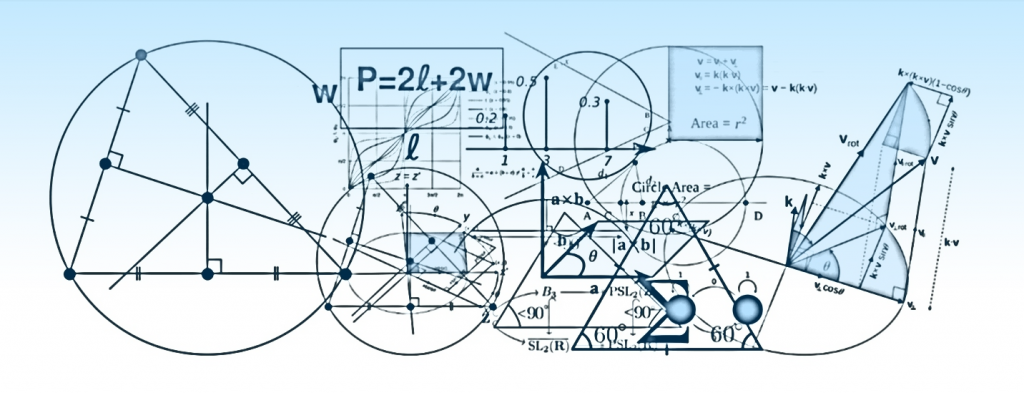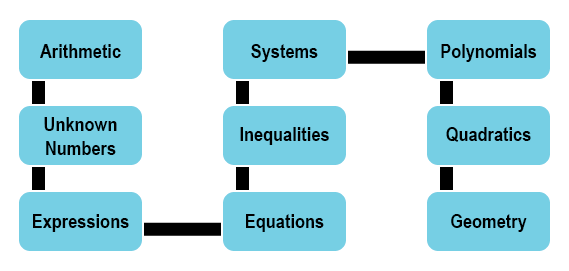 In short, yes. You will use Algebra in real life.
In short, yes. You will use Algebra in real life.
Algebra is a cornerstone of all mathematical understanding. Even as a young child, you used algebra to understand what the math problems asked you to figure out. When you learn algebra, you learn to order your thoughts and express your answers in a logical way. Although it may not be easy to see it, algebra is part of your everyday life.
Uses of Algebra in Daily Life
So, how is algebra used in everyday life? Let’s say you are asked to buy eggs to decorate for Easter. You have five dollars, and you run to the store and see that a carton of a dozen eggs cost $1.30. You can figure out how many eggs you can buy in a few ways, but because you’ve learned algebra, you mind can efficiently solve this problem. In your mind, you will divide the total dollar amount by the cost of eggs to come up with an answer. Algebra, though, teaches you to understand that you cannot go over five dollars using the concept of inequalities.
Because of this, you know you can only buy 3 cartons of eggs, so you’ll end up walking up to the register with the right amount of cartons of eggs, and you won’t need to worry about overspending. This may be a simple example, but algebra is useful when you need to analyze a problem before you come up with a solution.
Another way that algebra is used in real life is with functions. Functions represent relationships between information, almost like cause and effect. Although you may not think that you use functions at all, I can guarantee that you use them almost every day. For example, you know that when you put a glass of water in the microwave to heat it up, the longer you heat it up, the hotter the water will become. Because of your developing understanding of functions, you know that the temperature of the water is a function of the time it is microwaved.
There are countless real life situations that can be described with functions and other algebraic concepts. Your understanding of these real world situations, and your ability to build relationships between the information is an example of how learning algebraic concepts helped to clarify your thinking.
What are Quadratic Equations?

When you learn about the quadratic equation, you may initially believe it to be one of the most useless parts of algebra. But like with the rest of algebra, it can be used in everyday life. Profit, area of two-dimensional figures, and speed are three ways that we use quadratic equations. If you graph a quadratic equation, you’ll end up with a figure that looks like a hill; this is called a parabola. The parabola demonstrates the highest (or lowest) height of the path an object takes as it is launched through space. When you apply this to the real world, you can estimate how hard to throw a basketball for it to reach the basket, or how much it would be possible to earn from a lemonade stand.
Like functions, the quadratic equation has a lot of usefulness – particularly in engineering, sales, and the automotive industry.
Why is it Important to Learn Algebra?
Although algebra is used in everyday life, it’s not always easy to understand why you need to learn it, and what it will be good for in the future. When you learn algebra, you increase your speed for simple calculations, you build on your critical thinking and analysis skills, and you learn the building blocks for more challenging math. Everything you learn in algebra can be used to develop skills in statistics, calculus, and trigonometry, which can be requirements for many college degrees. A typical high school math progression often starts with Algebra I and then moves through Algebra II or Geometry.

Algebra may be used for aspects of everyday life, but that doesn’t mean algebra will always be easy to learn. If you have trouble with algebra, then make sure to get help right away. Schools have great resources for after-school tutoring, but another way to stay on track is to join an after-school enrichment program such as A Grade Ahead. A Grade Ahead can help you focus on developing skills with algebraic concepts as well as learn to apply those skills when you follow its algebra course.
In what ways do you see algebra used in your everyday life?
Author: Nicole Acevedo, Teacher Manager at A Grade Ahead
